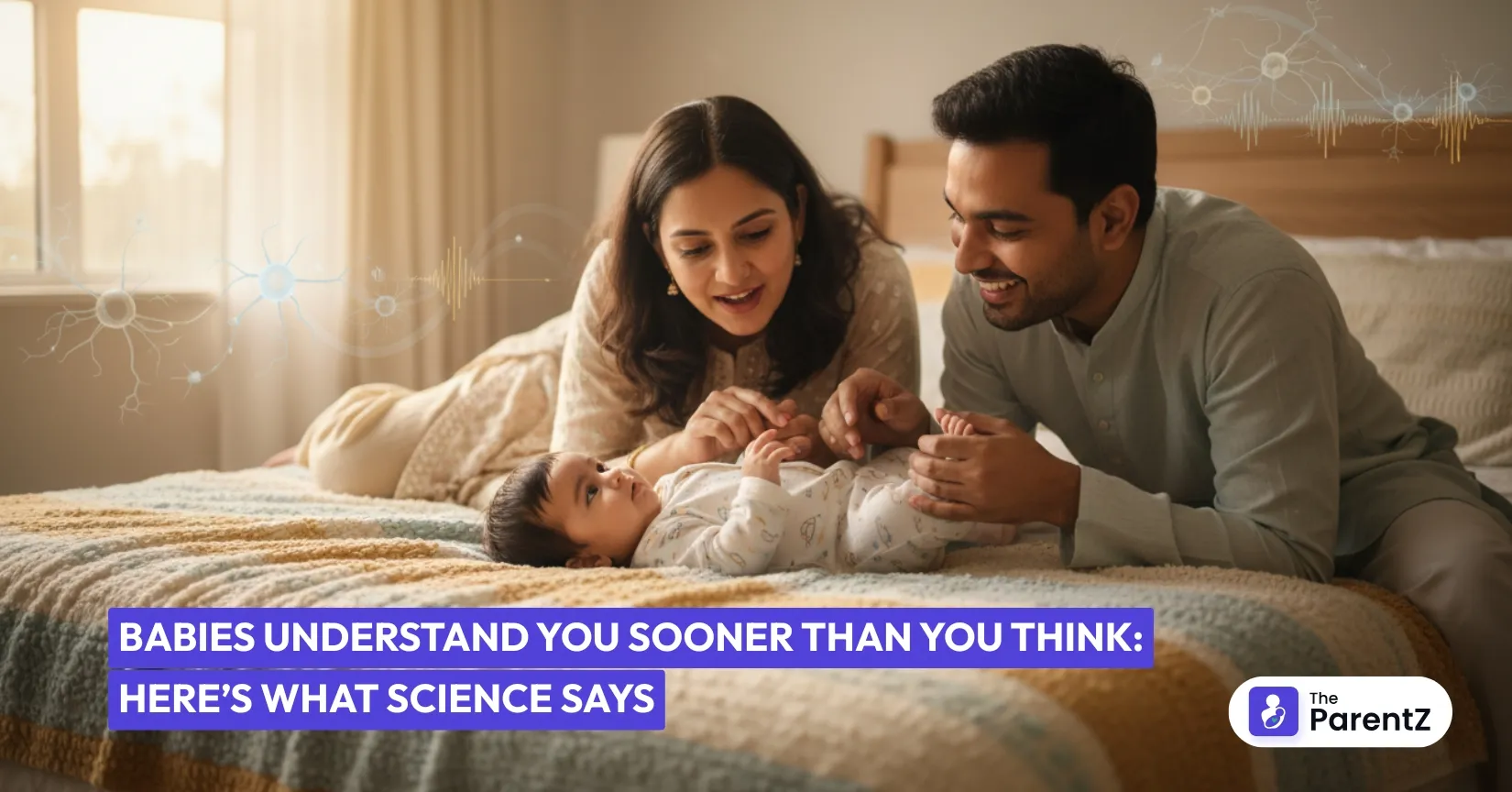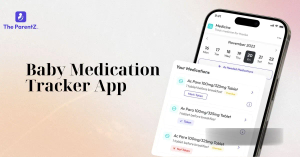If you’ve ever talked to your baby bump, sung lullabies before bedtime, or whispered stories to your newborn, you’ve probably wondered ‘Do they really know what I’m saying?’ Turns out, science says yes, at least to some extent. Babies begin understanding their world, especially through language, much earlier than most parents realize.
Babies Listen Before They Are Born
Studies have shown that a baby starts hearing sounds inside the womb around the third trimester. A team of researchers in Montreal found that unborn babies can even recognize different languages before birth. In the study, pregnant women around 35 weeks were asked to play short stories in French (their native tongue), German, or Hebrew. After birth, scientists monitored the babies’ brain activity as they listened again to these languages.
The results were fascinating as all babies recognized French, but the ones who had also heard German or Hebrew in the womb showed brain activity suggesting they could identify those languages too. That means babies remember not just the sound of their mother’s voice but also the rhythm and tone of the language she speaks.
Language Leaves Gentle Imprints on Baby Brains
The lead researcher, Anne Gallagher, noted that babies don’t “learn” a language before birth. Instead, different languages simply leave early imprints on their growing brains, shaping how they’ll process sounds later. Think of it like setting up the building blocks, the foundation for how their brains will respond to language once they start hearing and speaking more regularly.
For parents, this doesn’t mean you need to add extra lessons or foreign words to your baby’s playlist. It just shows that your voice, the sounds of your home, and the emotions behind your words already matter long before your baby says a single word.
Babies Begin Decoding Sounds at Four Months
Another exciting study published in Developmental Science has pushed our understanding even further. Researchers found that babies as young as four months start linking sounds they hear with how those sounds are made. Earlier, experts believed this ability developed much later, around 6 to 12 months.
How This Shapes Future Language Learning
By the time babies turn six months old, their brains start focusing more on the sounds they hear most often, a process called perceptual attunement. For example, a baby growing up hearing English starts tuning in to English sounds and gradually loses sensitivity to sounds that don’t exist in English, like unique tones in Mandarin or certain contrasts in Hindi.
Before this stage, though, babies have an incredible ability to tell sounds apart from any language, even ones they’ve never heard before. But by their first birthday, their focus narrows to what’s most familiar, like the difference between “r” and “l” in English.
This natural fine-tuning is not a loss; it’s the brain getting smarter, zooming in on the sounds that matter most to their daily life.
What It Means for Parents
These discoveries tell us something reassuring. You don’t have to do anything fancy or chase “advanced” learning techniques for your baby. Just talking, reading, and singing to your baby, even before birth, already helps their brain develop powerful connections.
Here’s what parents can simply do:
- Talk often, even about everyday things like cooking or folding laundry. Babies learn rhythm, tone, and comfort from your voice.
- Play soft music or story recordings during pregnancy or bedtime. It helps your baby connect with familiar sounds.
- Respond to your baby’s coos and babbles. Conversation is a two-way learning street, no matter how tiny the words are.
- Expose them to natural languages around you: a grandma singing in Kannada, a sibling speaking Hindi, or an English bedtime story. Diversity in sound helps build flexibility.
Conclusion
Babies are already wired to learn. Our job as parents is to keep the environment warm, rich in sound, and full of connection.
So the next time you talk to your baby, remember that they might not reply in words yet, but they’re listening, recognizing, and quietly building the tools they’ll use to talk, think, and learn. Science simply confirms what parents have always felt in their hearts: babies understand you sooner than you think.





Be the first one to comment on this story.